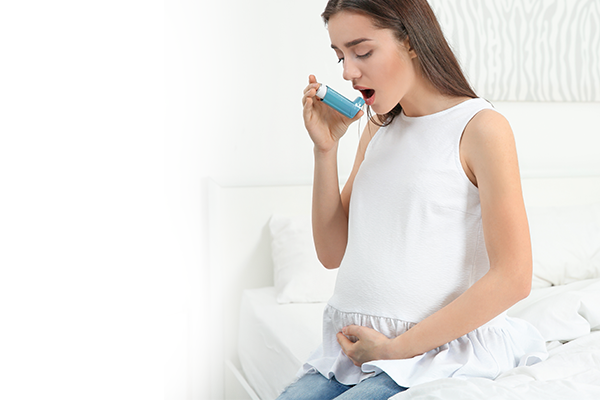Allergic diseases are a growing condition worldwide. Symptoms of sensitization vary, but in most cases they are bothersome. During pregnancy, a woman's immune system works in a different way than before, so allergy symptoms may then be exacerbated. What is the treatment of allergies during pregnancy? Is allergy related to the incidence of preterm labor?
Where does allergy in pregnancy come from?
Allergies are caused by an abnormal immune response of the body to a particular allergen, which in a healthy person does not cause such a reaction. If a woman has previously suffered from allergies, both muted and exacerbated symptoms can occur during pregnancy. During these 40 weeks, the mother-to-be’s immune system must cope with tolerating the developing antigenically foreign fetus. For this reason, the body of the mother-to-be may react to the allergens in the environment so far in a variety of ways – both with an impaired response or lack thereof, as well as an exacerbation of allergy-related symptoms.
One of the most common allergic diseases is allergic rhinitis (ANN). It manifests itself most often:
- Profuse watery nasal discharge
- Sneeze
- Itch
- The feeling of a clogged nose
It can also be accompanied by conjunctivitis, for example .
Allergens in pregnancy
Among inhalant allergens, the most common are:
- Grass and tree pollen
- Dust and mites
- Animal hair
- Fungi, molds
Allergic symptoms can also occur after consuming a variety of foods, among others. fruit. Inhalant allergy sufferers also have a risk of cross-reactivity. It relies on the fact that an inhalant allergen is closely related to a specific food allergen. An example of this phenomenon is food allergy to apple, which is very often combined with an allergy to birch pollen. Symptoms that appear in such a situation include, in addition to the typical symptoms of inhalant allergy, burning in the mouth, swelling of the lips or tongue. Treatment of cross reactions often involves excluding the ingredient in question from the diet. Such a move, however, should always be preceded by a visit to the doctor.
Allergy treatment during pregnancy
Allergic rhinitis has no negative effect on the developing fetus. It can be however very inconvenient for a pregnant woman. If a woman suffered from allergies prior to pregnancy, she should consult her doctor about whether her existing medications can continue to be taken during pregnancy. If allergy symptoms first appeared after pregnancy, it is best to go to an outpatient clinic and identify the sensitizing factor. That way, you can try to avoid it so it doesn’t lead to an exacerbation of symptoms.
Allergy treatment during pregnancy should never be done on your own, as some medications can have negative effects on the developing baby. Antihistamines II are usually used. Generation, such as cetirizine or loratadine. Intranasal steroids are also recommended in allergic rhinosinusitis, among others. budesonide.
Desensitization during pregnancy
Many women wonder whether desensitization is possible during pregnancy. If a woman has been desensitized before, immunotherapy can usually be continued. If the allergy was first diagnosed during pregnancy, desensitization is recommended only after delivery. Note that in some situations adverse reactions such as local reactions or hives may occur. However, they occur very rarely.
Both allergy treatment and desensitization during pregnancy have no effect on the ability to collect cord blood and store the baby’s stem cells. https://www.pbkm.pl/komorki-macierzyste/dlaczego-warto
Allergy and preterm labor
The causes of preterm labor still remain largely a mystery to specialists. Among the factors that can affect the occurrence of pre-term labor are the following. allergic reaction. The mechanism used as an argument is that mast cells produce prostaglandins or histamine, which have the ability to induce uterine contraction activity. However, it is not clearly established that an isolated allergic reaction can lead to preterm labor. However, due to the often uncomfortable symptoms of allergy, it is advisable to remain under the supervision of an allergist throughout pregnancy and take the indicated medications.
Catarrh in pregnancy-other causes
A runny nose during pregnancy can have causes beyond allergies. In addition to allergic rhinitis, the so-called “allergic rhinitis” is also distinguished. Hormonal rhinitis, which can appear at the very beginning of pregnancy. It is the result of hormonal changes occurring in the female body. It is diagnosed if the mother-to-be complains of a runny nose, but does not link this to contact with the allergen. In this form of rhinitis, there are no other symptoms suggestive of allergies or colds, for example. Hormonal catarrh is usually chronic and in some women persists throughout pregnancy making it difficult, among other things. peaceful sleep.
Rate this article:











